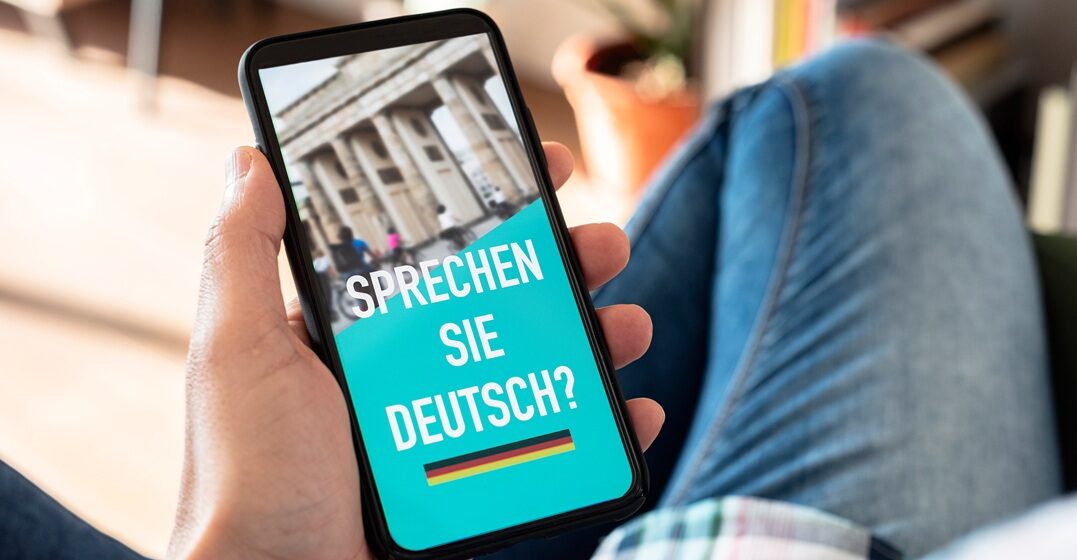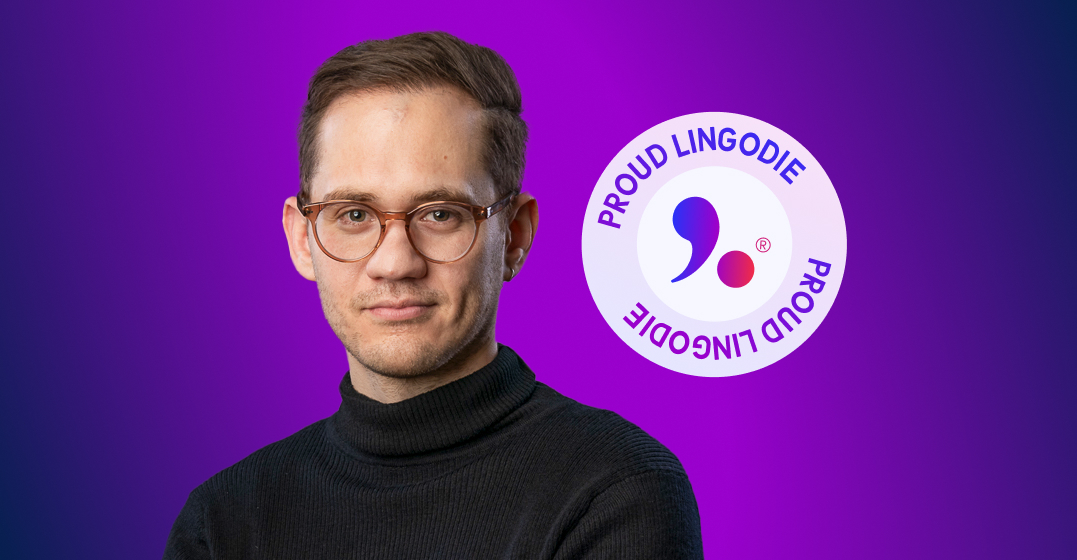Lingoda vs. Busuu: Head-to-head comparison
When comparing Lingoda to Busuu, it’s clear that these platforms take two entirely different approaches to language learning.

Lingoda focuses on live, teacher-led lessons that follow a structured curriculum and award CEFR-recognized certificates. Busuu, on the other hand, offers a self-paced, app-based experience built around interactive exercises and community feedback.
Still deciding between Lingoda and Busuu? This guide breaks down how each platform differs in teaching style, speaking practice, pricing and overall value. Whether you’re aiming for an official certificate or a flexible study routine, we’ll help you pick the platform that best supports your learning goals.
- At a glance: Quick comparison table
- What are Lingoda and Busuu?
- Curriculum and language skills focus
- Practice, feedback and additional recourses
- Flexibility, commitment and motivation
- Price, plans and value
- Certificates, validity and recognition
- Pros and cons: Which platform excels where
- FAQs
At a glance: Lingoda vs. Busuu
Lingoda stands out for its live, teacher-led lessons and valid certificates, while Busuu offers affordable, flexible self-study options with gamified progress.
| Lingoda | Busuu | |
| Price | Subscription-based pricing mode. More classes = lower overall price/class | Starting at ~€6–7 per month (Premium) |
| Languages offered | English, German, French, Spanish and Italian | Up to 14 languages, including English, Spanish, French and Japanese |
| Lesson type | Live group or one-on-one classes with qualified teachers | App-based lessons and quizzes |
| Speaking practice | Real-time conversations with teachers and other students | Voice recordings and peer feedback |
| Certification | CEFR-aligned, officially recognized | Completion certificates (not accredited) |
| Schedule flexibility | 24/7 class booking | Learn anytime at your own pace |
| Best for | Structured learners seeking measurable progress, who need a CEFR-certificate as proof | Casual learners who prioritize flexibility and fun |
What are Lingoda and Busuu?
In the world of online language-learning platforms, Lingoda and Busuu are among the more established names. While both platforms aim to make language learning more accessible for people with busy schedules, their models differ significantly.
Lingoda overview
Lingoda is an online language school. It is not an app, but rather a structured platform offering flexible, teacher-led learning. Lingoda is ideal for those who take language study seriously and whose eventual goal is fluency.
Learners can book group or one-one classes 24/7 to fit their time zone and routine, as Lingoda’s teachers are located around the world.
All lessons follow a curriculum aligned with the Common European Framework of Reference for Languages (CEFR). Learners can choose from English, German, French, Spanish and Italian, and measure their progress through clearly defined levels.
Busuu overview
Busuu is an app-based platform focused on interactive lessons, gamified exercises and short quizzes. The app also boasts a community feature, which allows learners to exchange feedback with native speakers and other users.
Busuu offers a free tier with limited functionality, though a premium subscription is required to unlock personalized study plans and AI-powered feedback. Overall, the app is designed for learners who prefer a self-paced, flexible approach and enjoy learning through short, interactive tasks (rather than live instruction).
Curriculum and language skills focus
Lingoda and Busuu both teach core language skills, though their courses differ in terms of depth and structure. Lingoda offers a guided, classroom-like experience, while Busuu delivers flexibility through short lessons and interactive tasks on its mobile app.
Structure and CEFR levels
Lingoda follows a fully CEFR-aligned curriculum that mirrors formal language school standards. It offers English A1 to C1 as well as German A1 to C1 — plus A1 to B2 for Business English, Spanish and French. Each class builds on previous lessons, with clear learning outcomes and progress tracking. Upon completion, learners receive CEFR-aligned certificates, which are accepted by many institutions worldwide.
Busuu also references CEFR levels in its course design (A1 to B2 for most languages), but progress is self-paced and non-accredited. While the app offers level-based completion badges, these are not equivalent to CEFR-certified qualifications and are generally not recognized by employers or official institutions.
| Platform | CEFR levels offered | Certificate type |
| Lingoda | German A1 to German C1 English A1 to English C1 Business English (A1 to B2) Spanish A1 to Spanish B2 French A1 to French B2 Italian A1 | Issued in accordance with CEFR |
| Busuu | A1 to B2 (most languages) B2 to C1 (English, Business English and Spanish) | In-app level badges; not externally recognized |
Grammar vs. communication
Lingoda’s teachers integrate grammar lessons into real-life conversations. The core principle is that the best way to learn a language is by speaking it yourself. You learn the rules, then use them immediately while speaking. It’s a balanced approach that builds confidence and accuracy at the same time. You’ll feel ready to use what you’ve practiced in real-world situations.
Busuu takes a more traditional path. You’ll see grammar explanations and short quizzes before moving into practice. It’s great for clarity, though it generally means fewer opportunities for spontaneous speaking.
As one Reddit user summarizes:
“Busuu is more for learning on your own through the content provided on the app. Lingoda is great if you are looking for well-structured classes. ”
Speaking practice
Lingoda emphasizes live speaking practice. Every class gives you the chance to talk with a native-level teacher and classmates, getting instant corrections and feedback.
Busuu, meanwhile, lets you record your voice and send it to the community for comments. It’s helpful for pronunciation, but since responses aren’t live, you miss the flow of real conversation.
Practice, feedback and additional resources
Both Lingoda and Busuu help you build language confidence, but their feedback systems work in completely different ways. Lingoda provides live corrections and teacher notes, while Busuu relies on AI tools and community feedback for review and reinforcement.
In Lingoda’s live classes, students speak throughout the session and get immediate corrections on pronunciation and grammar. After class, teachers share notes summarizing students’ progress, mistakes and key takeaways — so it’s always clear what needs some extra reviewing before the next session.
Outside class offerings, Lingoda’s blog expands on cultural and language topics, while the Lingoda Campus is a great resource dedicated to helping expats navigate life in Germany.
On the flip side, Busuu’s Smart Review feature resurfaces previously learned vocabulary and grammar, and the pronunciation tool lets you record your voice and compare it with native examples. You can also post short texts or recordings for community feedback, though responses can vary in quality and timing. Additionally, Busuu integrates authentic dialogues into its lessons, making it easy to hear how native speakers talk in everyday situations.
Flexibility, commitment and motivation
Choosing between Lingoda and Busuu often depends on how much structure you need to stay motivated. Lingoda promotes accountability through live scheduling, while Busuu gives you total freedom to learn anytime.
With Lingoda, you decide when and where to practice, with live classes designed to fit your schedule — whether one-on-one or in small groups. You can learn at any time of day, but classes still require you to show up, which helps you stay accountable.
For professionals or students with unpredictable routines, Lingoda Flex makes it easy to plan lessons around work, courses or travel. For an extra push, Lingoda Sprint offers a cashback refund to students who successfully complete a set number of classes in two months — a strong motivator for focused learners
Busuu, on the other hand, is completely self-paced. You can open the app anytime and complete short lessons whenever you have a few spare minutes. To promote consistent learning and encourage daily study habits, Busuu uses streaks, reminders and various goal-setting tools. It’s a great solution if you prefer a casual approach and want to learn without a fixed schedule.
Price, plans and value
Both Lingoda and Busuu offer flexible pricing, but they use different models. Lingoda charges per class, while Busuu requires a monthly or annual subscription for app access.
| Pricing model | What’s included | Best for | |
| Lingoda | Pay per class — the more classes you book, the cheaper it gets | Live lessons with qualified teachers, class materials, CEFR certificates | Learners seeking live instruction and clear progress |
| Busuu | Monthly or annual subscription | App-based lessons, Smart Review, pronunciation tool, community feedback | Learners on a budget, or those studying casually |
With Lingoda, you pay only for the lessons you take. Group classes average around €10 per hour, while private sessions cost more. The price covers live teaching, materials and recognized certificates.
Busuu’s Premium plan grants access to all languages and most features for a flat monthly fee, but some advanced tools (like personalized study plans and AI feedback) are only available in the Premium Plus option.
Overall, Lingoda offers higher value for learners who want professional instruction and measurable results, while Busuu delivers strong value for independent learners on a tight budget.
Certificates, validity and recognition
Certification is one of the biggest differences between these two platforms. Lingoda’s certificates are CEFR-aligned and widely recognized, while Busuu’s are for personal tracking only.
Lingoda issues CEFR-aligned certificates to all students who successfully complete a level. They include the student’s name, the language studied and the CEFR level achieved.
Busuu also offers certificates at the conclusion of every course level, but they are not officially CEFR-certified. While these certificates can be a useful way to track learning or show personal commitment, they usually aren’t accepted for formal applications or language requirements.
Pros and cons: Which platform excels where
Both Lingoda and Busuu have clear strengths, depending on how you like to learn.
If you prefer structured lessons and real conversational feedback, Lingoda offers deeper learning and measurable progress. Another big plus is the validated CEFR-certificate, which comes in handy if you’re studying with a specific goal in mind or need proof of your accomplishments.
If you want to study casually and at your own pace, Busuu’s flexibility and price are two good reasons to give the app a try.
| Pros | Cons | |
| Lingoda | • Live speaking practice in every class • Customized feedback after each class • CEFR-aligned curriculum with recognized certificates • 24/7 scheduling and small group or 1-on-1 options • Qualified, native-level teachers | • Higher cost than app-based options • Requires scheduling and attendance |
| Busuu | • Low monthly cost and free basic tier • Learn anytime via short app lessons • Smart Review, pronunciation tool and community feedback • Gamified progress tracking | • No live classes or teacher interaction • No customized feedback • Certificates not officially recognized • Limited speaking practice |
What is the difference between Lingoda and Busuu in speaking practice?
With Lingoda, you speak directly with teachers and classmates during live lessons and receive real-time conversational feedback. Busuu focuses on recorded exercises and community feedback, so speaking practice is self-paced rather than live.
Are certificates from Lingoda and Busuu valid for visa or job applications?
If you need a certificate for a job or visa application, Lingoda’s official CEFR-based document can be used in most cases. Busuu’s certificates are informal and mainly serve as proof of personal learning.
Can I use Busuu alone and still become fluent?
You can make steady progress with Busuu alone, especially for vocabulary and grammar. However, reaching full fluency is difficult without regular speaking practice or live interaction.
Lingoda vs. Busuu: Which one should you choose?
If you’re interested in learning a new language, you’ll likely encounter Lingoda and Busuu at some point. Both platforms have their own approach to language learning. Which one is best for you depends mainly on your goals, schedule and preferred learning style.
If your priority is speaking confidently and reaching fluency, Lingoda is the stronger option. Live classes, professional teachers and a CEFR-aligned curriculum can provide structure and hold you accountable. On top of that, you’ll receive an officially recognized certificate for job or visa applications every time you complete a level successfully.
If you’re a beginner or casual learner, Busuu’s app is a practical and affordable way to build vocabulary and grammar skills. Its flexibility lets you study whenever you have time, and features like Smart Review and streak tracking help you stay consistent without pressure.
The right choice comes down to how serious you are about your language goals and how much guidance you want along the way.

Begin your personal language journey
- Courses tailored to your learning needs
- Qualified teachers, small class sizes
- Expert-designed curriculum
- Live classes with native-level teachers















